

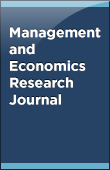
10.18639/MERJ.2020.962097
Review Article
Jan 03, 2020
Innovation public policy has an essential role in influencing the competitive capacity of companies and is strongly associated with their ability to innovate and the way they are organized. As important as the technological organization of work is the social dimension, namely, involvement, participation, and commitment of the workforce, as these are, par excellence, factors that contribute to creating added value and differentiation for companies. In this sense, the concept of innovation depends on an integrated vision between the human dimension and the other multiple dimensions that innovation can assume. Public policies, besides the goal of creating a more modern and competitive business and industrial context, also are focused on the development of the workforce, not only in digital competences but also in soft skills. This type of skill contributes to creating a more innovative context and a culture of innovation. This article’s goal is to make a global overview of innovation and the public policies to promote the modernization of companies and influence the way they contribute to economic growth.
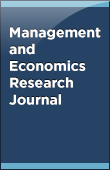
10.18639/MERJ.2020.958657
Original Research Article
Jan 02, 2020
This paper employs a combination of unit root tests and fractional integration techniques using the ARFIMA(p,d,q) model to test rational bubbles, which implies herd behavior, in Bombay Stock Exchange (BSE). The results in the paper strongly support the evidence of herd behavior in the daily, weekly, and monthly price aggregates. Moreover, the paper also investigates the degree of conditional volatility persistence using FIGARCH(p,d,q) specification to show that the persistence of shocks to stock price and dividend yield volatilities is short-termed.
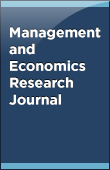
10.18639/MERJ.2020.961567
Original Research Article
Jan 02, 2020
In the era of globalization and making headway in innovation, educational establishments and industries are confronting new difficulties as well as openings in the zone of transferring knowledge. The stipulation for students and lecturers has changed significantly and they anticipate becoming competent enough to use new technology for researching. With the growing pace of technology, the faculty, students, and managers are becoming more hi-tech-oriented as never before, which is resulting in more demand for research and training. Training will help the academia–industry to compete in the global environment as well as cater to international students and fulfill their needs too. However, to remain competent globally, knowledge transfer has become the need of the hour to disseminate knowledge and provide inputs to solve business problems. Knowledge transfer between educational institutions and industry is considered as an important driver of innovation and economic growth, as it eases the commercialization of new scientific knowledge within firms. Knowledge transfer denotes facilitating the sharing of the mentioned knowledge with one another. The paper will emphasize on a methodical literature review of the academia–industry interface in order to identify various factors contributing to their effectiveness. The primary data was collected through a questionnaire survey done on a sample of 100 employees working in various educational institutions and industries of Moradabad city, Uttar Pradesh, India and analyzed with the help of various statistical tools. The study also aims to identify the impact of key success factors on employee compliance with knowledge transfer. The researcher also evaluates the impact of employee compliance with knowledge transfer on organizational effectiveness. The contribution of this study will help both educational institutions and industry to better understand the knowledge transfer systems.
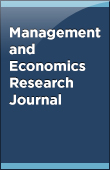
10.18639/MERJ.2019.eS4.BAI
Editorial Note
Dec 31, 2019
Special Issue S4: “Global Trade Wars: A Case of Sino–US Trade War”
In the 21st century, trade has been recognized as the most significant vehicle for accelerating the pace of growth and development for a country, irrespective of developed or developing in particular, and global economy, in general. Accordingly, trade disputes and wars that have come out as the biggest issues for the global trading system are a matter of great concern. This is because the very purpose of creating World Trade Organization (WTO) is being defeated, that is “promotion of multilateral trading system”. Trade disputes and wars that are being combined with the “build up in leverage and higher asset unit values” may have emerged out as a deterrent to world trade and the same in turn may affect the existing global trading system to a greater extent. It has become sin-quo-non to have minimum possible trade wars among the major trading economies across the world. In the past decade, we have already seen that two contributory factors, namely leverage and asset prices, which were responsible for the 2008 crisis. The same situation has started coming up. Hence, the global leaders must pay attention on both the issues on war footing. Otherwise, the situation may become worse and out of control. It is an undisputed fact that world growth has been strong and sound during the last few years. However, on the one hand, the matter of concern for global players is how long it will remain strong and sound; on the other side, the persisting elevated asset price could be justified on the basis of strong and sound economic growth in general, world trade in particular, across the world.
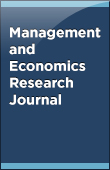
10.18639/MERJ.2019.961306
Review Article
Dec 13, 2019
Special Issue S4: “Global Trade Wars - A Case of Sino-US Trade War”
This article aims to study international trade specificity and the main activities of Chinese companies in US markets. It addresses the strategic tools of companies and their application in a global and very competitive market, framed by public policies and governments’ strategies. It explores the principles of the internal and external environment of the countries. The main research question is: what are the dimensions of a model to potentiate the US–China Companies? The principal methodology used in this research was a literature review, and the analysis was based on the papers that research the theme US and China trade relations. The findings reflect that international trade is conditioned by the government politics, and there are several other obstacles that a US or Chinese company need to overcome: (a) economic forces; (b) technological forces; (c) political–legal forces; (d) sociocultural forces; and (e) physical forces.
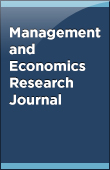
10.18639/MERJ.2019.954696
Review Article
Nov 19, 2019
During decades of isolation beginning from 1962 and lasting till 2011, Myanmar seriously suffered from international sanctions. Ruled by the military regime, the country was doomed to economic and social failure. Studying the process of its transformation seems to be very interesting both from business and scientific points of view, and this is the main purpose of the paper. The literature and information about Myanmar’s reforms are considerably limited and it is deeply justified to contribute to the knowledge on this fast emerging country. The methodology used in this article is based on the analysis of the existing statistical data, coming from international reports and statistic yearbooks. The basic parameters of these analyses concern macroeconomic and social indicators. Comparisons with The Association of Southeast Asian Nations (ASEAN) countries are critical for the conclusions drawn in this article. On its way to the formation of a democratic society Myanmar faced a lot of problems. Some of them, such as the unsolved Rohingya refugee crisis, have had a bad effect not only on domestic reforms, but also a global effect, sometimes recognized as an international crisis. For business, Myanmar is one of the fastest growing economy in the world with a population of 51 million, which makes it an attractive market. The GDP per capita in Myanmar is low, so the domestic market guarantees a growing demand.
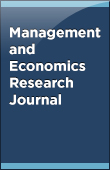
Original Research Article
Nov 15, 2019
Financial inclusion has remained a critical driver toward poverty reduction in an economy. There has also been much focus on financial inclusion of women as they tend to be marginalized by the mainstream financial institutions. Kenya on its part has achieved high levels of financial inclusion. Access to bank services has been easy and at a low cost. Till 2016, access to credit has also been easy for all persons with bankable ideas in all sectors including agriculture for either gender. However, this changed after the review of the Banking Act that introduced the interest rate capping in the financial market. The purpose focused on increased collateral requirement and additional customer information requirements on the financial performance of women-owned Agribusiness small and medium enterprises (SMEs). The target population of this study was 950 licensed women SMEs with a sample of 274 licensed SMEs. From the study, collateral requirement due to interest rate capping had a negative and statistically insignificant effect (r 5 20.114, p 5 0.079) on the financial performance. On a positive note, the study found that additional customer information requirement due to interest rate capping had a positive and statistically significant contribution (r 5 0.437, p 5 0.000) on financial performance of agribusiness SMEs. The study concluded that effective maintenance of financial records not only helps SMEs access credit but also help them improve performance. This study strongly recommends capacity building among women on maintenance of financial records as it will improve access to credit and performance of their businesses.
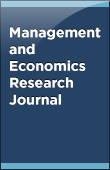
10.18639/MERJ.2019.958453
Review Article
Nov 07, 2019
Special Issue S4: “Global Trade Wars - A Case of Sino-US Trade War”
To comprehend Sino–US trade relations, this research article decrypts the trade relations among China and the United States from the American government perspective (Presidency of Donald Trump). The American government claims that the Chinese government’s high import levies and subsidies to Chinese firms cause the Sino–US trade war, bringing about economic misfortunes in the United States. The American government thus contends that forcing high levies on Chinese products (imports) can be corrective measures for Chinese governments’ actions. This research article discovers that the American administration overestimates the deficits. Measures for diminishing China’s imports cannot raise the American employment rate; on the contrary, China furnishes the United States with high caliber and low-cost products and services. Although China is one of the top investors for the United States, Chinese capitalists tend to capitalize the surplus by investing in American ventures and bonds. However, American administration limits Chinese capitals because of security concerns supported by various other nations (i.e., France, Germany, Britain, Australia, the European Union, Australia, Canada, and Japan). The fear for Chinese capitalists due to China’s moving up to the high end of the value chain is an outcome of economic advancement. Consequently, the two nations should restrategize Sino–US trade patterns by developing trade and economic co-ordination by means of trade arrangements.
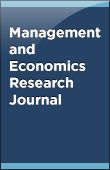
10.18639/MERJ.2019.953623
Review Article
Oct 21, 2019
Special Issue S4: “Global Trade Wars - A Case of Sino-US Trade War”
Globalization today can convincingly be said to have reached its pinnacle. However, with the world turning into a global space of homogeneity the stakes of survival have risen up too. The various forms of environmental degradation culminating into climate change have been accelerated due to globalization. This review discusses one such form of global environmental degradation that poses a serious threat to the health of citizens in the Global South. The phenomenon being talked about here is that of global waste dumping, a practice that has caught up roughly over the past four decades. The context that helps in illustrating the same is the United States–China trade war, narrowed down to the recent ban imposed by China and India on the import of plastic waste. As a reaction to excessive plastic waste dumping from Global South to Global North, 180 nations agreed in Geneva to add mixed plastic scrap to the Basel Convention. However, as will be shown in this review, the burden has only shifted to even poorer nations who willingly buy plastic waste from countries of Global North. The phenomenon of dumping plastic waste can be explained through the distinction between the developed and developing countries understood in the dualist taxonomy of Global North and Global South.
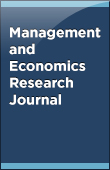
Original Research Article
Oct 11, 2019
It is known that the service quality is the main parameter of every service providing organization for survival. Therefore, the organizations must evaluate their service quality periodically and plan for improvement. While evaluating their service quality, companies should rely not only on the end users’ evaluations but also on the gap between the service providers’ perception and the customers’ perception about the service quality level. The study aims to compare the service providing perceptions of department/unit managers and the service quality evaluations of students at private universities. For this purpose, we used the ServQual survey questionnaire to assess all service providing academic and administrative units of Tishk International University (formerly known as Ishik University). The data have been collected in two phases; first, we gave the ServQual survey questionnaire to managers and employees of each department/unit. The survey contained questions about the opinions of managers and employees about how quality service has been delivered in their unit. In this context, cafeteria, students’ affairs, dean of students, academic department of student, and accounting unit were evaluated. Second, ServQual was modified for the students to evaluate the service quality that they perceive in those units. Finally, the evaluated results of the managers and the students were subtracted from each other, and the gap was determined. Based on the results, we gave some suggestions to the administration.
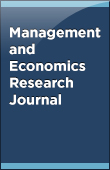
10.18639/MERJ.2019.956433
Review Article
Oct 08, 2019
Special Issue S4: “Global Trade Wars - A Case of Sino-US Trade War”
United States (US) and China are the two largest economies of the world, where the former is the biggest developed economy and the latter is one of the largest developing economies of the world. This paper implores to assess the cause and effect of the US-Sino Trade War. The attempt is to understand the reasons behind the same and its impact on warring economies and collateral damage to the economies of other countries. The experience establishes that trade wars have no winners. The war started in year 2018; the long-run effects of this trade war are still to be seen yet; till date the impact of this crisis has been substantial for both the US and China.
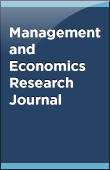
10.18639/MERJ.2019.874701
Review Article
Oct 02, 2019
Special Issue S4: “Global Trade Wars - A Case of Sino-US Trade War”
This article is written to summarize what has been going on in trade war between the United States and China and to express how this war affects trade relations of Latin America with both of the actors being involved in the trade war. The reason why Latin America is chosen as a region to work on rests on the fact that both the United States and China have been conducting considerable trade relations with the region. This article is organized to analyze what kind of a position Latin America would be at during the upcoming moves from two giants and how the region should revise its ties with both economies considering the past relations it has had with before this trade war emerged. There have been many moves taken by the United States and China after the dispute started to show up; however, Latin America has been conducting considerable relations in terms of trade, politics, historical orientation, and geographical ties with both giants since long before the trade dispute began. Therefore, this article has an aim to recover the historical trade relations of Latin America and to have some clues to determine what can come next for the region’s economic position and trade relations. Colonial past of the region, the role it has played during the Cold War, the involvement of the Latin America in trade relations with China, and Chinese presence in the region are the factors that are included in the article to understand the critical position of Latin America in the Sino–US trade war.
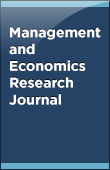
Original Research Article
Sep 30, 2019
Despite financial inclusion being a key driver of growth and income equality, developing countries continue to have significant proportion of populations without access and usage of basic formal financial services. Instead, most still subscribe to informal financial services, which have low or nonexistent entry barriers. In the context of small holder farmers, informal financial services can moderate their access to finance where there are gaps in the formal financial instrumentation. The present study, therefore, sought to determine the moderating effect of informal financial services on the use of formal financial services among small holder farmers in Kenya. The target population for this study were small holder farmers from Nakuru, Busia, and Kirinyaga counties in Kenya; a sample size of 496 was obtained and selected through purposive and stratified random sampling techniques. Data were collected using copies of a researcher-developed questionnaire and analyzed using multiple linear regression analysis with Stata. The findings reveal that informal financial services did not have a moderating effect on utilization of formal financial services among small holder farmers. The study recommends that the formal financial institutions develop products and work closely with informal financial services to encourage more utilization of financial services.
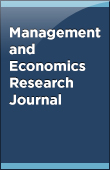
10.18639/MERJ.2019.945413
Review Article
Sep 30, 2019
Special Issue S4: “Global Trade Wars - A Case of Sino-US Trade War”
The paper attempts to provide an overview of the ongoing trade war between the United States and China. The major focus is to discuss the recent developments and discuss a time line of the events. It also looks at some of the other aspects that are linked with the ongoing trade war such as the Foreign Investment Law, the White Paper issues by the Chinese government discussing the trade war, and the Huawei issue.
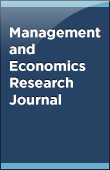
10.18639/MERJ.2019.954639
Review Article
Sep 27, 2019
Special Issue S4: “Global Trade Wars - A Case of Sino-US Trade War”
The Sino–United States (US) trade war since 2017 has triggered Sino–US confrontations in the economic field and also intensified geopolitical competition. From a historical perspective, the current Sino–US trade war is a continuation of the conservative US trade policy, rather than a dramatic development. From a global perspective, the trade dispute between China and the United States is only part of President Donald Trump’s grand global economic strategy that aims to stabilize the economic hegemony of the United States. Trump’s economic diplomacy targets both China and its Western allies, with the goal of achieving a comprehensive and complete solution. The developmental status of the United States shows that its economic strength is increasingly insufficient to support the status of global hegemony, as well as being increasingly incapable of meeting the global requirements for providing public goods. Therefore, trade wars are essentially trade policy adjustments made by the United States to consolidate its hegemonic foundations and fight against potential opponents, e.g., the trade wars against Germany in the 1960s and Japan in the 1980s. Based on the timeline of the current trade war, Trump was obviously well prepared. Trump’s behavior now clearly violates the basic rules of WTO and his policy does not focus on technology and innovation, which is key to future economic growth. Whether Trump’s well-planned and aggressive economic strategy will work, it will fundamentally change China’s US policy from cooperative to more independent.